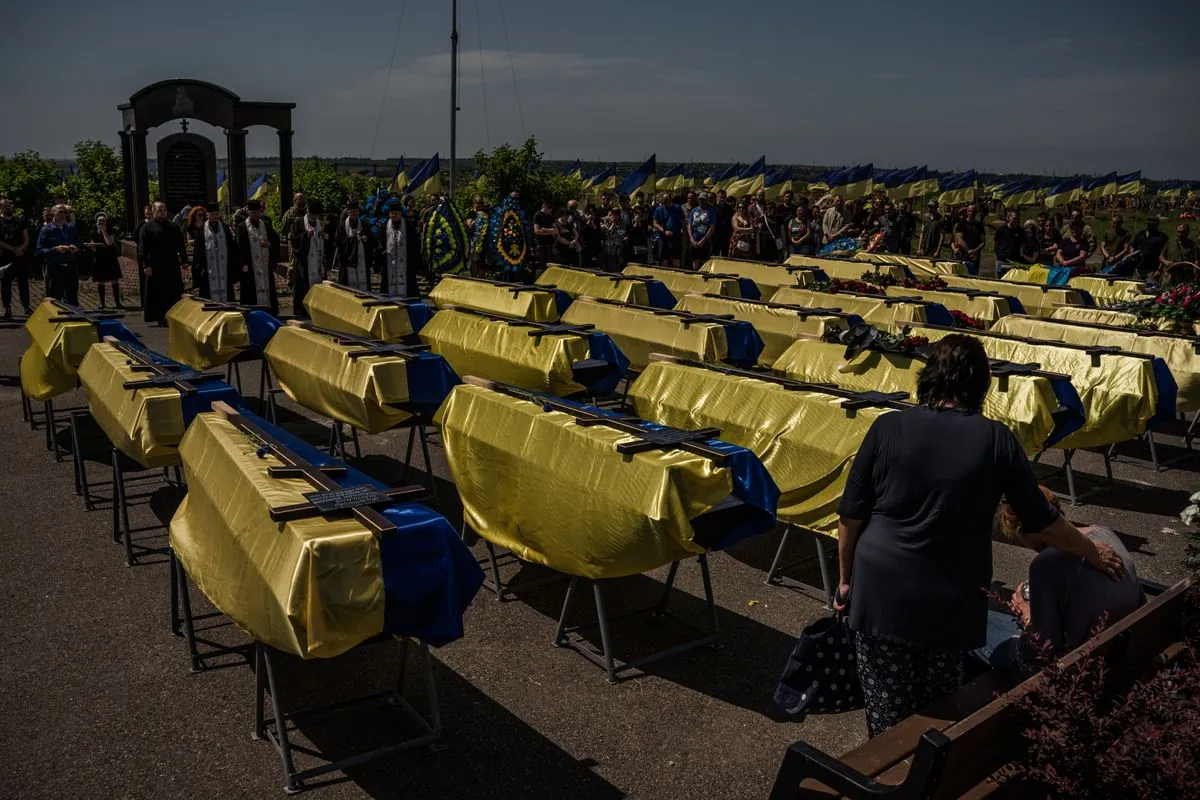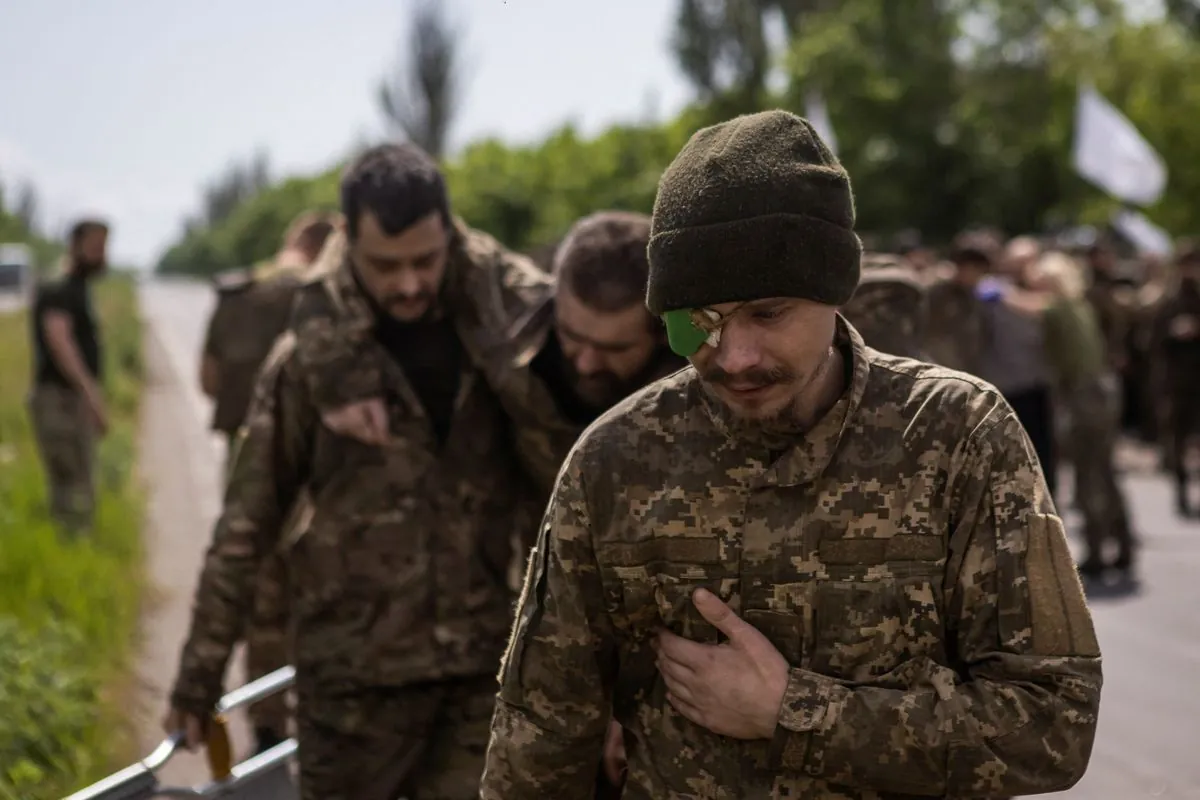Ukrainian Soldier's Tragic Fate Unveils POW Struggles in Russia-Ukraine Conflict
The death of **Oleksandr Ishchenko** in Russian captivity highlights the plight of Ukrainian POWs and their families. His case reveals the challenges in prisoner exchanges and the desperate measures taken to bring loved ones home.

The case of Oleksandr Ishchenko, a Ukrainian soldier who perished in Russian custody, sheds light on the harrowing experiences of prisoners of war (POWs) and their families in the ongoing Russia-Ukraine conflict. Ishchenko's story, which unfolded over 2 years and 8 months, exemplifies the challenges faced by thousands of Ukrainian families with loved ones in Russian prisons.
Oleksandr Ishchenko joined a territorial defense unit in February 2022, shortly after Russia's full-scale invasion of Ukraine. These volunteer formations, created to support the Armed Forces of Ukraine, played a crucial role in the early stages of the war. Ishchenko's unit eventually merged with the Azov Brigade during the siege of Mariupol, a city that endured nearly three months of relentless attacks.
The Azovstal steel plant in Mariupol became a symbol of Ukrainian resistance, with Ishchenko among the defenders who held out against Russian forces. In May 2022, over 1,000 Ukrainian troops surrendered at the plant, marking the fall of Mariupol and the beginning of Ishchenko's captivity.
For months, Ishchenko's family had no information about his fate. It wasn't until August 2022 that they received a phone call from him, learning he was imprisoned in Russian-occupied Donetsk. Later, he was transferred to Rostov-on-Don, a major city in southern Russia.

The family's efforts to secure Ishchenko's release highlight the complexities of POW exchanges in this conflict. Despite the existence of the Ukrainian Coordination Headquarters for the Treatment of Prisoners of War, established in 2022, many families feel compelled to seek alternative means to help their loved ones.
Ishchenko's wife, Olena, and daughter, Kristina, went to great lengths to maintain contact with him. They utilized a Russian website called Zona Telekom to send food and letters, providing a lifeline of support. This practice of using paid services to communicate with prisoners is not unique to this conflict and exists in various prison systems worldwide.
In June 2023, Olena attended a peace summit in Switzerland, joining other POW relatives to plead for their loved ones' release. However, their hopes were shattered when they received news of Ishchenko's death in July 2023.
The circumstances surrounding Ishchenko's death remain unclear, with conflicting autopsy reports raising questions about potential mistreatment. The UN Human Rights Monitoring Mission in Ukraine has documented numerous cases of torture and ill-treatment of Ukrainian POWs by Russian forces, underscoring the grave concerns for prisoners' well-being.
Faced with bureaucratic hurdles in retrieving Ishchenko's remains, the family turned to a private funeral service. For approximately $4,000, they arranged for a man to pose as Ishchenko's nephew and transport his body from Russia to Ukraine. This desperate measure illustrates the lengths families are willing to go to bring their loved ones home.
"We were afraid if he'd be buried in Russia, we'd never find him."
Oleksandr Ishchenko was laid to rest in the military section of Dnipro's cemetery, joining countless other soldiers who have lost their lives in this conflict. Military cemeteries serve as important sites of remembrance and national memory, preserving the legacy of those who made the ultimate sacrifice.
Since 2022, more than 3,000 Ukrainian prisoners have been returned home through various exchange mechanisms. However, the total number of POWs held by both sides remains undisclosed, leaving many families in a state of uncertainty and anguish.
The psychological impact on families of POWs, known as "ambiguous loss," is a recognized phenomenon in conflict situations. As the war continues, the plight of prisoners like Oleksandr Ishchenko and their families remains a pressing humanitarian concern, underscoring the urgent need for adherence to international laws governing the treatment of prisoners of war.


































